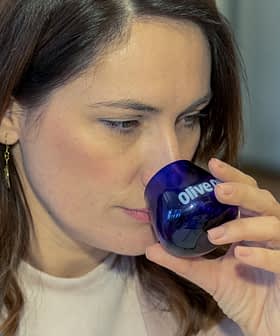Young students following the Mediterranean diet and exercising regularly demonstrated improved working memory, according to the results of a new study.
Working memory refers to a system in the brain responsible for temporarily holding and manipulating information necessary for performing complex cognitive tasks.
The researchers believe their findings should be considered when developing public programs and educational policies targeting school-age children.
See Also:Health News“Working memory is a short-term memory; it is the ability to remember information and to build on it,” Laura Dallolio, a researcher at the University of Bologna and co-author of the study, told Olive Oil Times. “It is like having a blackboard one can take notes on, retain and elaborate on.”
Using a standard test in working memory research, the researchers gave 106 students aged 6 to 10 from the northern Italian town of Imola a series of numbers to remember, asking them to repeat the numbers back in reverse order.
By gradually adding new numbers to the series, thus increasing the difficulty of the challenge, scientists could test the limits of the efficiency of the students’ working memory.
“We did not expect these results, as the beneficial effects of the Mediterranean diet on students have rarely been researched, and they are usually broadly associated with well-being and general health,” Dallolio said.
Mediterranean diet
The Mediterranean diet is a way of eating that is based on the traditional dietary patterns of the countries that border the Mediterranean Sea. The diet emphasizes the consumption of plant-based foods, including fruits, vegetables, whole grains, legumes, nuts, seeds and extra virgin olive oil, with moderate amounts of fish, poultry and dairy products.
The researchers explained that better working memory is linked with improved learning skills, affecting academic achievement and opportunity.
Language skills, reading comprehension, mathematics and reasoning are all impacted by working memory. “It is a function that continues developing until about 12,” Dallolio said.
Along with problem-solving, self-control and mental flexibility, working memory is among the main executive brain functions, all of which are interrelated.
“Research has proven that physical activity and the Mediterranean diet affect cognitive function,” Francesco Esposito, a researcher at the University of Bologna and co-author of the study, told Olive Oil Times. “It has also shown that the intake of polyphenols and other Mediterranean diet contents impact cognitive health.”
“In the latest edition of the MedDiet pyramid, physical activity is shown at the base of the pyramid,” he added. “That is because dietary habits and physical activity are strictly connected, so they are considered together.”
“It is a virtuous circle,” Alice Masini, a researcher at the University of Bologna and co-author of the study, told Olive Oil Times. “One cannot say if more significant physical activity comes from healthier dietary choices or vice versa. They are two aspects deeply linked to each other.”
“When we see the data collected from the participating schools, we cannot say if the outcome is due to the dietary habits or to the physical activity, as the focus is on the whole of the impact and outcomes,” she added.
To evaluate the Mediterranean diet adherence of the students, researchers collected data from parents and caregivers about their children’s eating habits.
Using a benchmark food index, researchers assigned positive and negative scores to the different food choices to measure the impact of healthy and less healthy diets.
See Also:Mediterranean Diet Might Mitigate ADHD in Children, Study Suggests“As an example, the index assigns a positive score to the regular daily consumption of vegetables,” Rossella Sacchetti, a researcher at the University of Bologna and co-author of the research, told Olive Oil Times. “On the contrary, it gives a negative score to dietary intake that does not belong to the healthy model of the Mediterranean diet, such as not having breakfast, eating fast food or consuming sweets daily.”
“Thanks to this index, we were able to pair the food scores of the pupils to their working memory abilities,” she added. “Previous studies focused on the consumption of specific nutrients or specific groups of foods.”
The data collected from students and families also show a tangible relationship between a father’s education status and a student’s healthy food intake and working memory outcomes.
According to the researchers, these findings demonstrate how family-based factors determine crucial aspects of children’s cognitive functions.
“That relationship was very evident in all our analysis,” Esposito said. “The fathers’ degree of education was linked to the family’s socio-economic status and the children’s working memory. This impacts healthy food choices and sport practice opportunities.”
However, the researchers said further studies investigating the cognitive health impacts of following the Mediterranean diet and exercise must be done to confirm these findings.
“If we want to establish and understand a cause-effect relationship [between Mediterranean diet adherence and working memory functions], such longitudinal studies should unfold across longer periods of time,” Sacchetti said.
“Our future research will also focus on how dietary habits and physical activity can exert a role in determining the inhibitory abilities of children, which are essential to developing self-control successfully,” Masini added.
The research team said they are currently working on more broad research around the impact of consuming the Mediterranean diet on young students.










